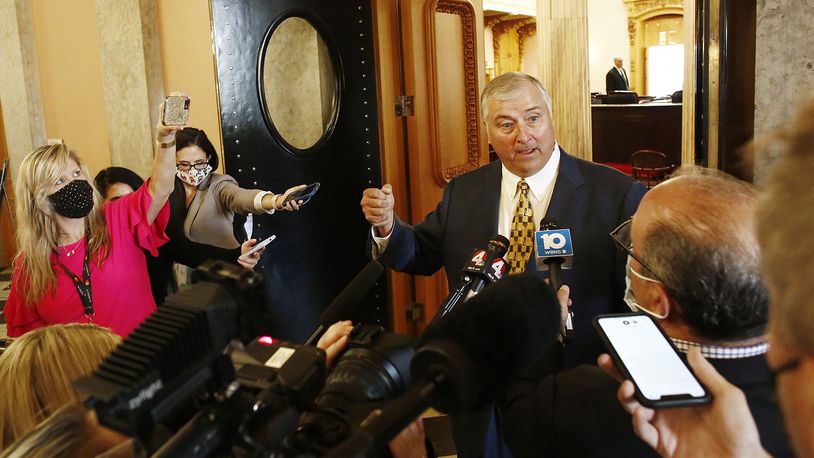“The members of our caucus will vote as they deem appropriate, but as I said before, I’ll believe it when I see it,” Sykes said.
Householder, who has pleaded not guilty to racketeering charges in U.S. District Court, did not respond to a request for comment.
His attorneys issued a statement that said: “Any effort to remove Mr. Householder from the Ohio House would be unprecedented and would serve to disenfranchise the tens of thousands of voters in District 72 who voted for Larry in the 2020 election even after the allegations surrounding HB 6 were revealed. Any attempts to remove Mr. Householder would also undermine the presumption of innocence that all citizens, including Mr. Householder, are entitled to receive.”
Federal prosecutors allege that Householder is a central player in what they called the biggest public corruption scandal in state history. Akron-based utility companies funneled nearly $61 million through dark money groups to position Householder as speaker and in turn pass a $1.3 billion bailout bill for the companies and defend it against a referendum attempt, according to a criminal complaint in the case.
The subsidies authorized in House Bill 6 were to be paid by all electric customers across Ohio, including the Miami Valley.
Calls for Householder’s immediate removal from office were hushed by the argument that a lawmaker could only be expelled once; Householder was running unopposed for reelection. But when the House kicked off the new legislative session Jan. 4, no vote was held.
House Speaker Bob Cupp, R-Lima, who asked Householder to resign, has had little to say when reporters asked him for updates on the expulsion question.
While Householder has yet to go to trial, two of his associates — political strategist Jeff Longstreth and lobbyist Juan Cespedes — submitted guilty pleas in October. Generation Now, one of the political non-profits used as a conduit, submitted a guilty plea in February.
Additionally, FirstEnergy Corp. fired chief executive Chuck Jones and other top executives and terminated half a dozen lobbyists.
Last week, state Rep. Bill Seitz, R-Cincinnati, who has repeatedly defended Householder, said: “Let’s start with the false insinuation that there was anything corrupt in this chamber about the passage of House Bill 6. I don’t think we had a representative Longstreth in this chamber when we voted on House Bill 6. And we didn’t have a representative Cespedes either. And there was no representative Generation Now either. Those are the three people and entities that have pleaded guilty.”
While Householder has been indicted, Seitz suggested that federal prosecutors are uncertain about the strength of their case because U.S. District Court has delayed proceedings.
The court has found the case is complex and that the defense needs more time to review case documents.
An expulsion vote has not been held in at least five decades, according to Mike Curtin, a former state lawmaker and co-author of Ohio Politics Almanac. Expulsion votes were held in the 1800s, according to Democracy in Session; A History of the Ohio General Assembly.
About the Author
